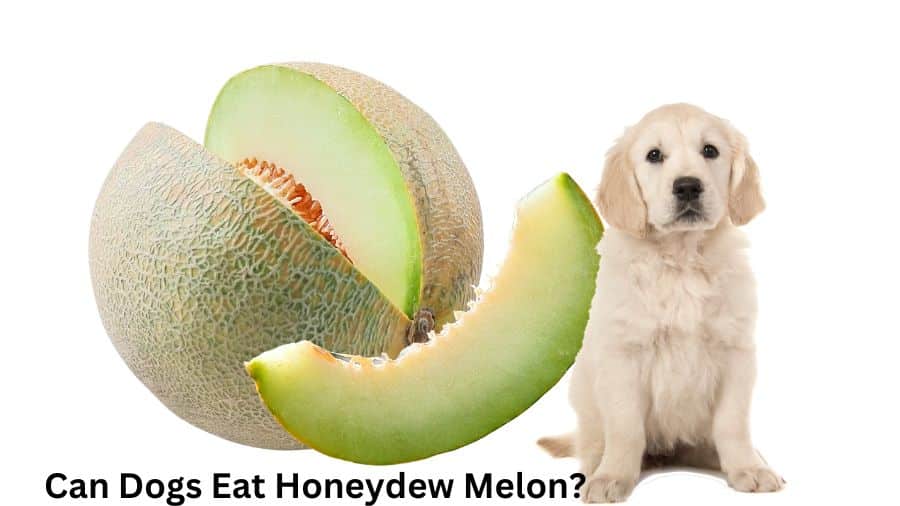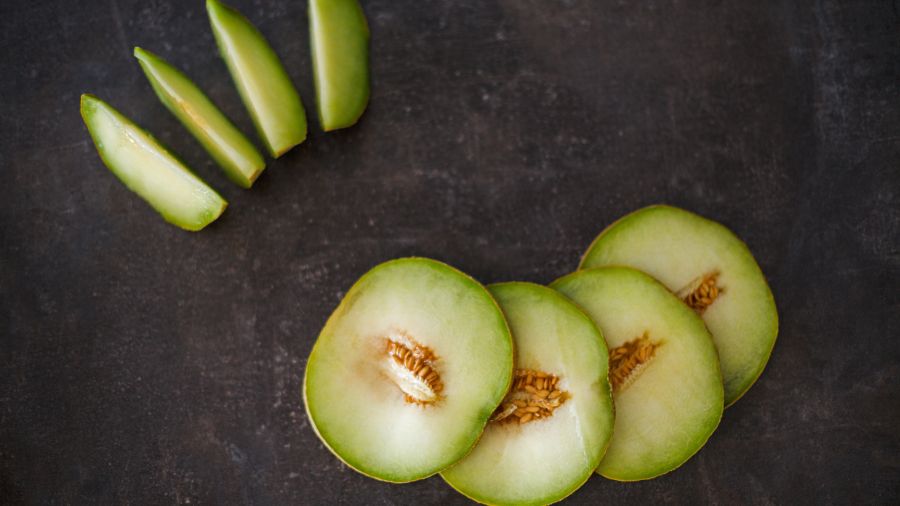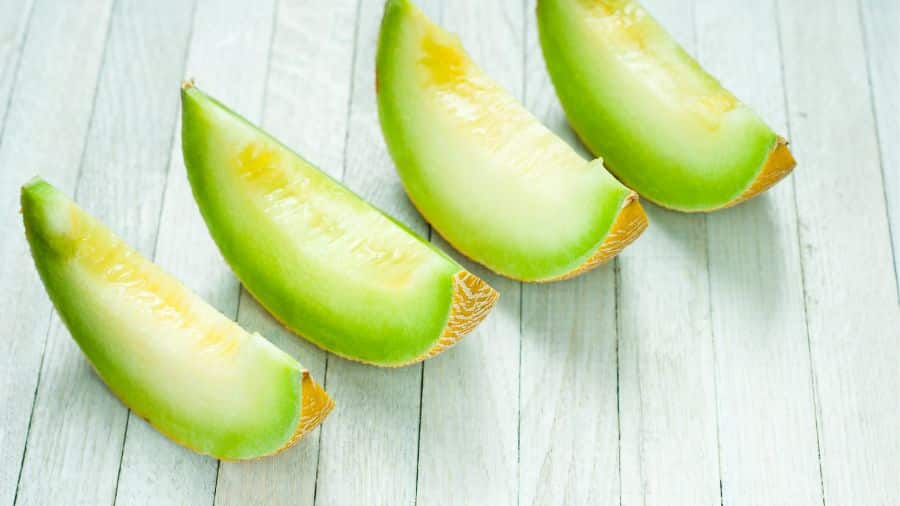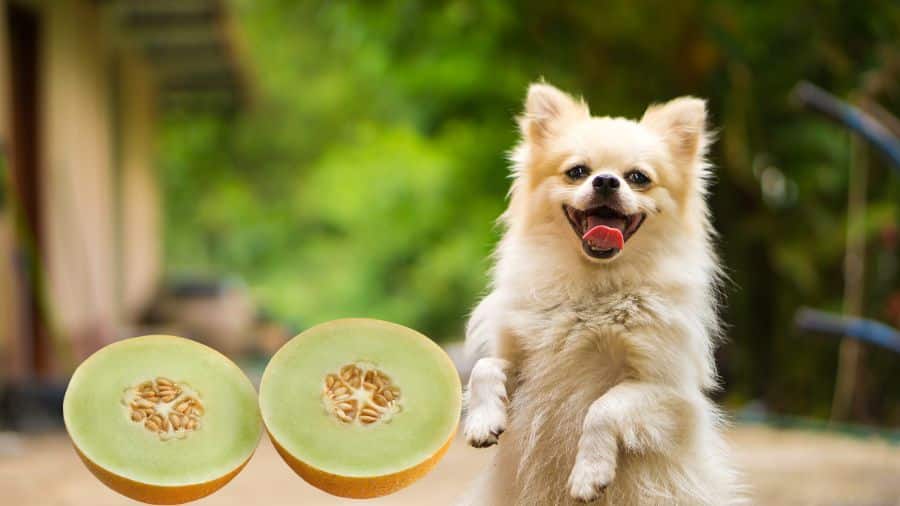
Can Dogs Eat Honeydew Melon?
With its predominantly water content, Honeydew Melon is an excellent fruit for hydrating and supplying important nutrients to the body.
The commercial feed provided to dogs already contains all the necessary vitamins. Dogs can eat Honeydew melon, provided they take some care.
The benefits of honeydew melon for dogs

There is no doubt that dogs eat Honeydew Melon. Still, as we discussed above, quality commercial rations are already developed with all the nutrients necessary for the proper functioning of a pet’s body.
When a veterinarian prescribes homemade food, provided it follows his guidelines, it provides complete and balanced nutrition. Nutrient supplements are not necessary.
No matter what, dogs enjoy eating different types of food from time to time. In this sense, honeydew melon can be a healthier snack than most commercial snacks, as it is low in sodium and fat and rich in vitamins and minerals. Take a look at the benefits and nutrients of Honeydew Melon for dogs.
- It participates in hormone synthesis, regulates skin functions, and maintains vision. A substance called retinol can help prevent night blindness.
- B vitamins: help maintain brain function, skin health, glucose metabolism, and cell replication. Additionally, they fight free radicals, which cause cellular degeneration and ageing.
- The body relies on potassium for pH balance, nerve conduction, enzymatic reactions, and transporting substances across the cell membrane. It is, therefore, essential for the body’s functioning.
Because these nutrients are already obtained from a balanced diet, one of Honeydew Melon’s biggest benefits is hydration, so dogs can eat Honeydew Melon.
It is water-based and useful for increasing fluid intake. Consequently, this lowers the risk of kidney disease and keeps the dog hydrated.
How does Honeydew Melon affect dogs?

When administered in moderation, Honeydew Melon is safe for dogs, especially the pulp, since it poses no major risks to their health.
Neither the peel nor the seeds of the fruit are edible. The seeds in Honeydew Melon can lead to intestinal obstruction.
Symptoms include vomiting, abdominal discomfort, and lack of appetite. Keep an eye out if your friend consumes seeds by accident! If it exhibits any behavioural changes, you should take it to the veterinarian immediately.
Honeydew Melon peel is very hard, and it can cause accidents such as injuries to the oral region and even choking.
Furthermore, it is difficult to digest and can lead to gastrointestinal imbalances and discomforts.
There is also a caution regarding the consumption of honeydew melon by diabetic or overweight dogs. Sugars present in fruit can worsen the condition. Before offering Honeydew Melon as a snack, consult a veterinarian!
How to give Honeydew Melon to a dog?

The most practical way to serve Honeydew Melon to your dog is to cut it into pieces.
It’s even better when Honeydew Melon is served cold on hot days. Fresh and ripe fruits should always be offered!
Honeydew Melon is a good treat for your dog because of its abundant water. Making popsicles out of the fruit is a good idea in this situation. Blend the Honeydew Melon with water until it becomes pasty. In place of water, you may also use coconut water.
Other fruits can be mixed, such as pear and water Honeydew Melon. After beating, pour the contents into ice or popsicle pans, freeze, and serve to the pet. They love it!
Dogs can benefit from honeydew melon.
Dog Honeydew Melon has many benefits, including how much water it contains.
Lack of fluid consumption can lead to infections, such as a urinary tract infection. On hot days, fruit is a good choice! Always offer with care, without seeds or excess.
The vitamin C in honeydew melon makes it an excellent natural antioxidant. Vitamins strengthen the immune system and prevent disease, benefiting your puppy.
Moreover, it contributes positively to the absorption of nutrients from their diet, preventing the loss of muscle mass.
Honeydew Melon’s purifying properties, as well as its natural antioxidants, vitamins, and carotenoids, benefit the skin and hair of your dog.
A and B vitamins are also present in Honeydew Melon. A vitamin that aids in vision health, B vitamins help the nervous system function and fight free radicals. The health benefits of Honeydew Melon are also enhanced by fiber and potassium.
However, it would be best to remember that dog food already contains all the nutrients necessary for your pet’s health. This Honeydew Melon can be served as a snack but without excesses.
CONCLUSION

Providing the Honeydew Melon pulp as a snack (also a positive reinforcement) is ideal. Please do not give the seed or the shell!
The amount of Honeydew Melon your dog, can consume depends on his size, weight, and health condition. The recommended number of pieces per day is four or five a day.
In case of doubt, consult a veterinarian who can provide the most appropriate care for your pet. The first time your pet eats Honeydew Melon, it is recommended that you give a small piece,
Frequently Asked Questions
Are all types of melons edible to dogs?
Dogs can eat melon and cantaloupe in moderation. However, due to its high sugar content, owners should be mindful of how much they add to their dog’s menu. You should consult your vet before giving your dog any human food, including melons.
What melon can dogs not eat?
Much like a watermelon rind, a cantaloupe rind can cause gastrointestinal upset for your dog and impact his digestive tract. Additionally, these tough, fibrous skins are choking hazards.
Can dogs eat kiwi?
Kiwis are available all year round, more vitamin C-rich than oranges and more potassium-rich than bananas, providing many nutritional benefits. Kiwis are good for dogs, but can they eat them? Sharing kiwis with your dog when snacking is fine.
Can dogs eat cantaloupe or honeydew?
However, they can be a choking hazard for your dog. Ideally, you should not intentionally feed them to your dog; however, if they do eat one, no harm should be caused. Similarly, giving your dog whole slices of melon can cause choking
Leave a Reply